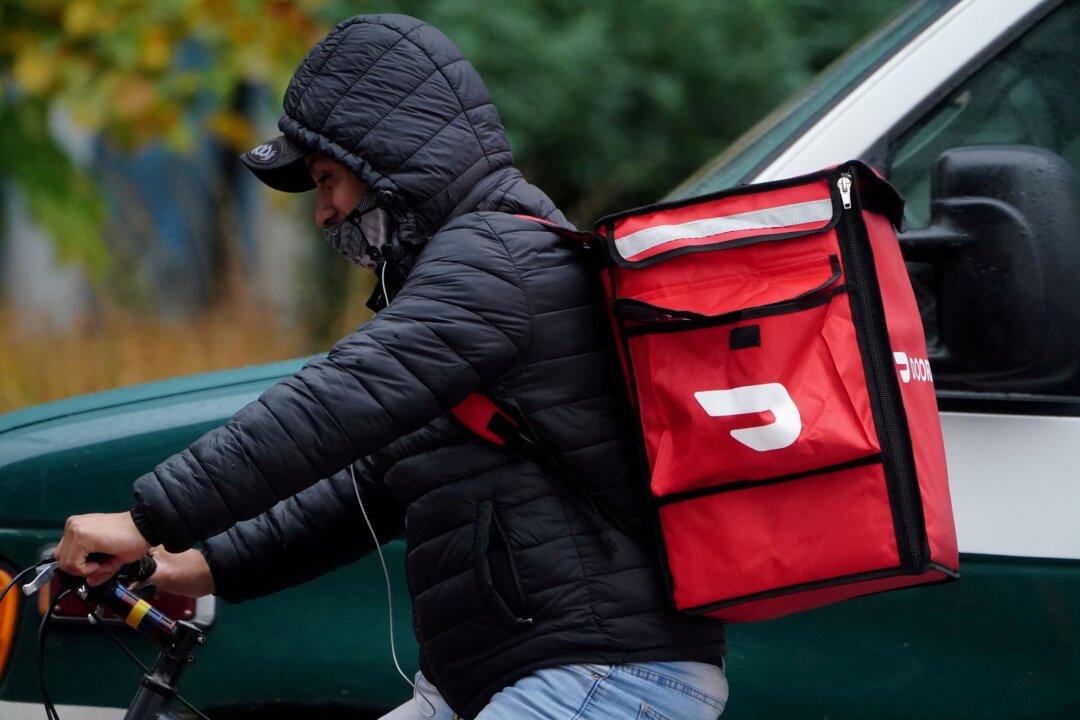DoorDash and two other delivery service companies are suing New York City for capping how much they can charge restaurants.
The city in May 2020 enacted caps presented as temporary on the rate that third-party platforms like DoorDash could charge restaurants. The law was slated to expire 90 days after on-site dining was allowed again. But the price controls were extended three times. The third was the passage of a law that would make the caps permanent.





